Fees
Fees breakdown by usage type: internal (assisted and unassisted) and external, in USD $ / Hour
See Fees
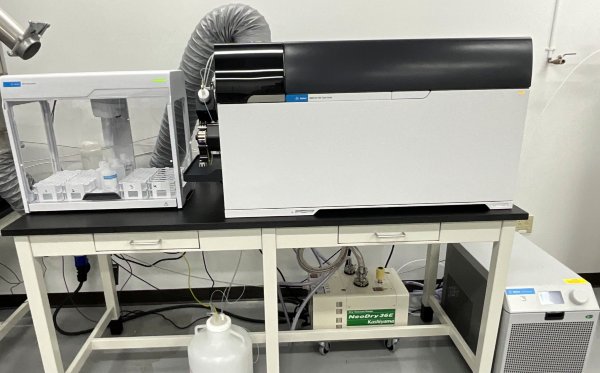
Agilent 8900 ICP-QQQ with Laser Ablation
Location: 263 McNutt Hall
Acquisition Date: July 2024
The Agilent 8900 triple quadrupole ICP-MS (ICP-QQQ) is a high sensitivity elemental analyzer. The 8900 offers the same matrix tolerance and robustness as comparable single quadrupole systems and is capable of both helium (He) collision mode and DRC. The 8900 adds tandem mass spec operation (ICP-MS/MS) for unmatched control of reaction chemistry in the collision reaction cell (CRC). Additionally, an independent laser introduction system is available to attach with this model to perform laser ablation ICP-MS and generate spatially defined elemental concentrations.
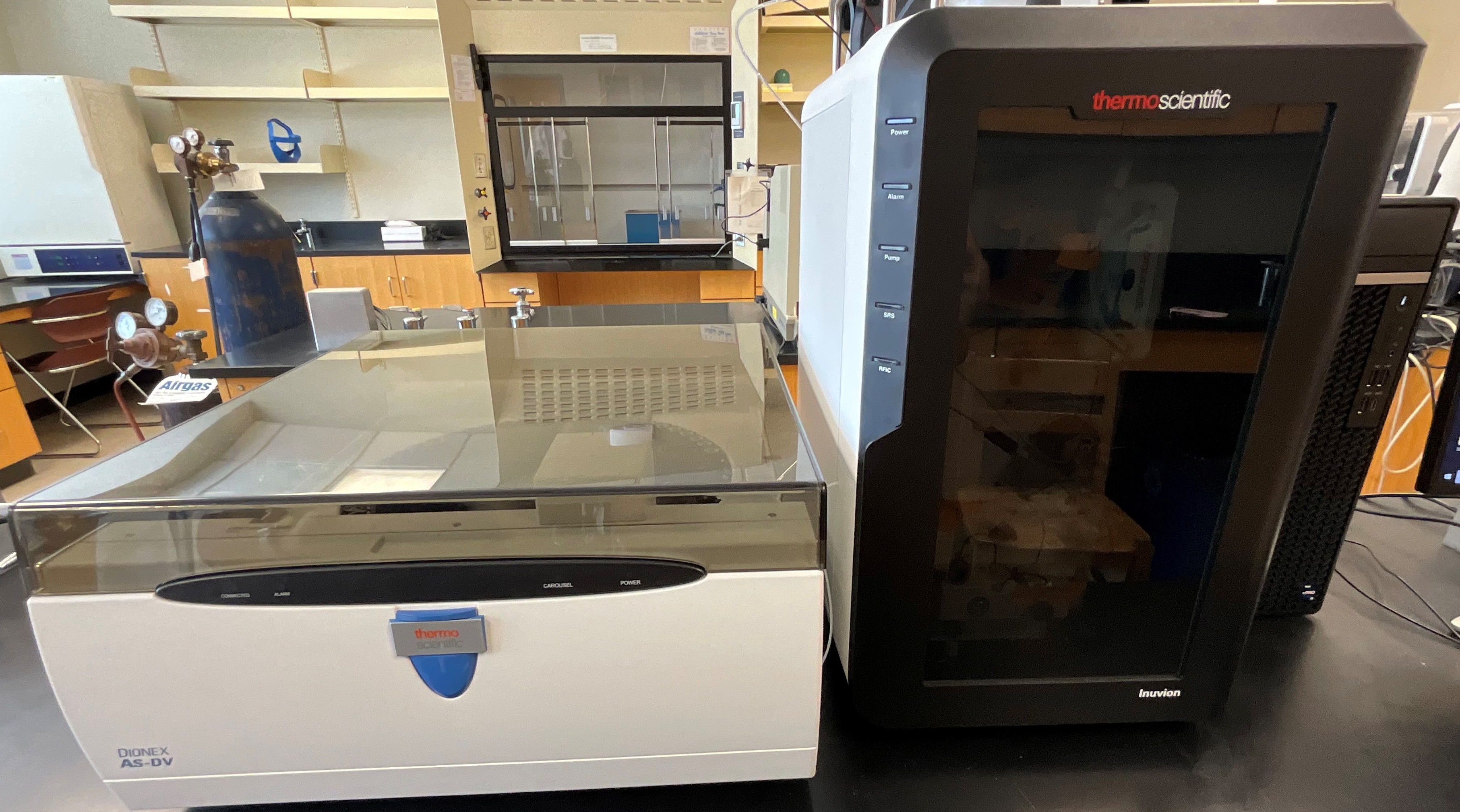
Thermofisher INUVION - Ion Chromatography
Location: 202 Butler Carlton Hall
Acquisition Date: July 2024
The Dionex Inuvion IC System include RFIC for automated eluent generation capabilities. Optional accessories can be swapped in and out of the instrument by users in less than five minutes for extended application capabilities. This instrument is mainly used to analyze anions such as fluoride (F-), chloride (Cl-), nitrate (NO3-), nitride (NO2-), phosphate (PO43-), sulfate (SO43-), and many other anions.
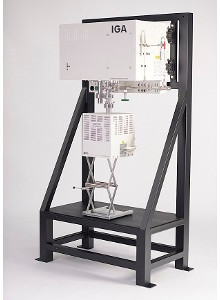
Hiden Analytical IGA-003 DYNAMIC GAS and VAPOUR SORPTION ANALYZER
Location: 302 Butler Carlton Hall
Acquisition Date: October 2024
Available for use: October 2025
The IGA-003 system can be used to study mixed gas/vapor sorption on materials such as carbons, zeolites, polymers and catalysts. sample reactor. The IGA-003 is a dynamic gas sorption analyzer incorporating multiple controllable inlets with combined pressure and flow control, and integrated mass spectrometry. Incorporating an ultra-sensitive microbalance, the IGA-003 measures changes in sample mass as a function of temperature, pressure and gas composition.
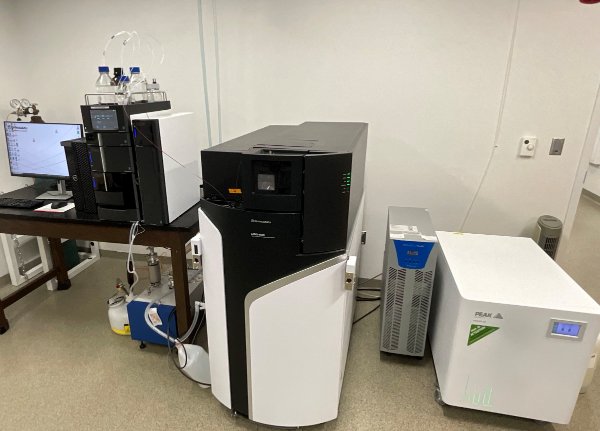
Shimadzu 9030 q-tof High Resolution LCMS
Location: 222 Schrenk Hall
Acquisition Date: 06/01/2023
This high-resolution Q-Tof LCMS system has a mass range of m/z 10 to 40,000 with mass resolution of 30,000 FWHM and accuracy of <1 ppm at m/z 622.5662 with internal correction. The system is equipped with a standard electrospray ionization source, which can be exchanged for an optional matrix assisted laser desorption ionization source. LabSolutions Insight Explore software allows for both qualitative and quantitative analysis, as well as design of data-dependent or independent acquisition experiments. The liquid chromatography front end can conduct UPLC experiments up to 10,000 psi and is equipped with a binary pump for independent solvent flows, a standard column oven, and an autosampler that accepts autosampler vials as well as 96 well plates.
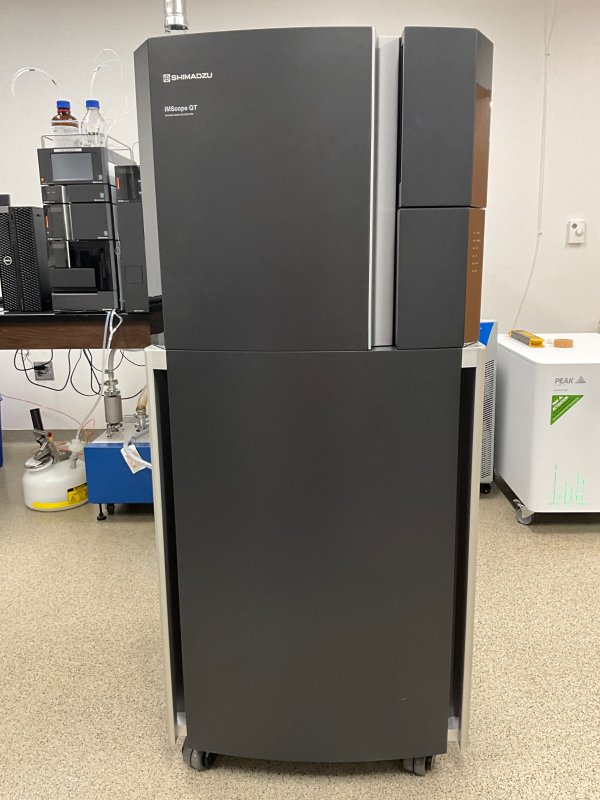
Shimadzu iMScope MALDI imaging system
Location: 222 Schrenk Hall
Acquisition Date: 06/01/2023
This matrix assisted laser desorption ionization imaging platform delivers image resolution of up to 5 microns and is coupled with a three objective optical microscope which can overlay microscopic images with MALDI generated images. The iMScope QT coupled to the Shimadzu 9030 Q-Tof provides detailed MS/MS information in location specific areas of tissue samples. The software stack, including LabSolutions and Insight, is fully integrated with the mass imaging software Image Reveal, which allows for seamless transition from method development to final image processing. A Shimadzu iMLayer Aero, an automated matrix sprayer, delivers highly fine layers of matrix onto prepared slides to produce high resolution images in a temperature, humidity, and matrix clog-free environment. The matrix sprayer can coat up to 2 plates at a time with run times varying greatly based on application.
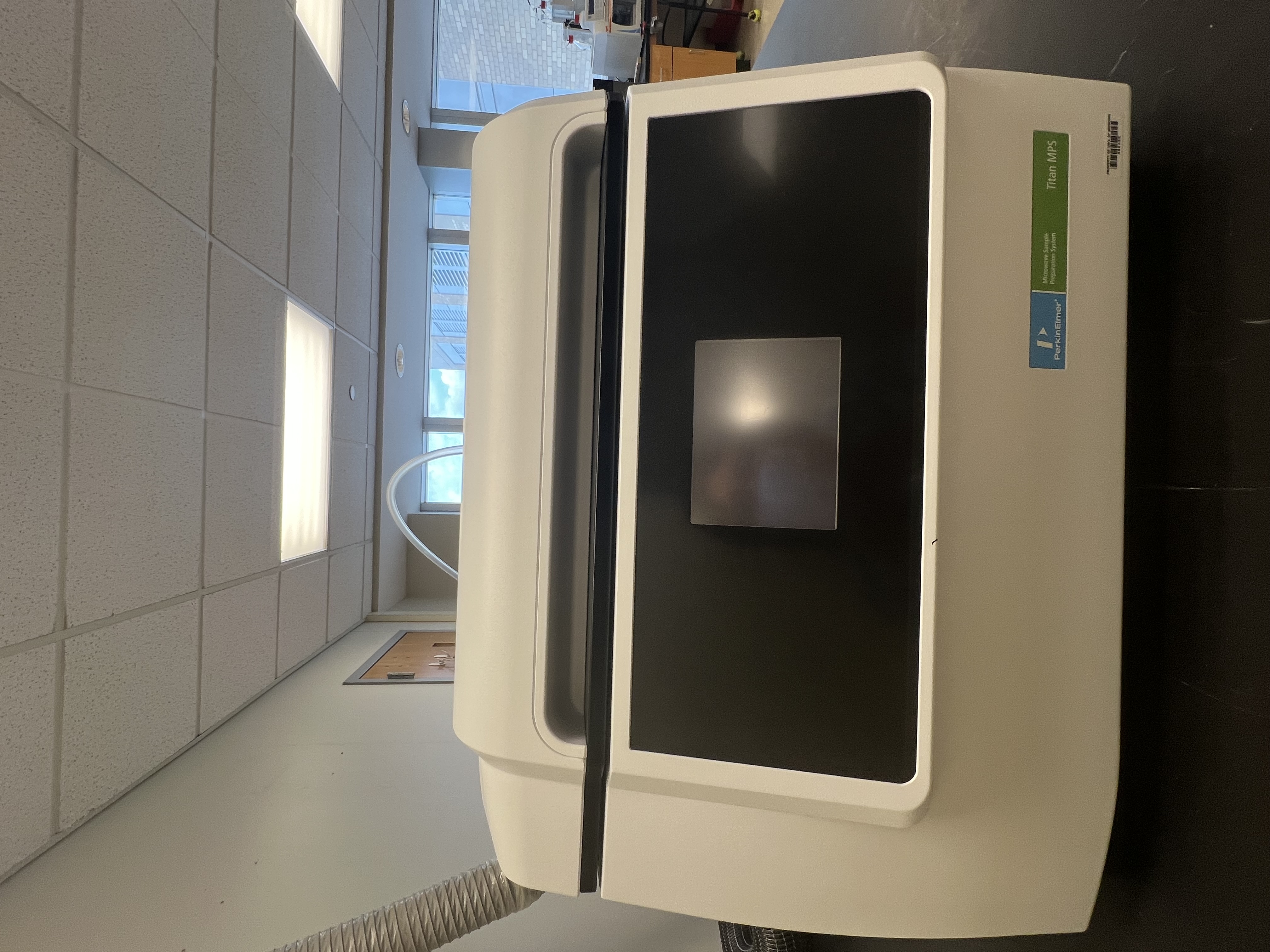
Titan MPS Microwave Digestion System
Location: 202 Butler-Carlton Hall
Acquisition Date: 2020
This Titan MPS microwave digestion system is a Perkin Elmer product. It can ramp temperatures within the vessels and hold temperature to digest up to 200C and can safely perform digestions in the presence of most concentrated acids including aqua regia. Includes: Digestion performance is enhanced f to unique Direct Pressure Control™ (DPC) 30 bar and Direct Temperature Control™ (DTC) optical-reaction monitoring systems.
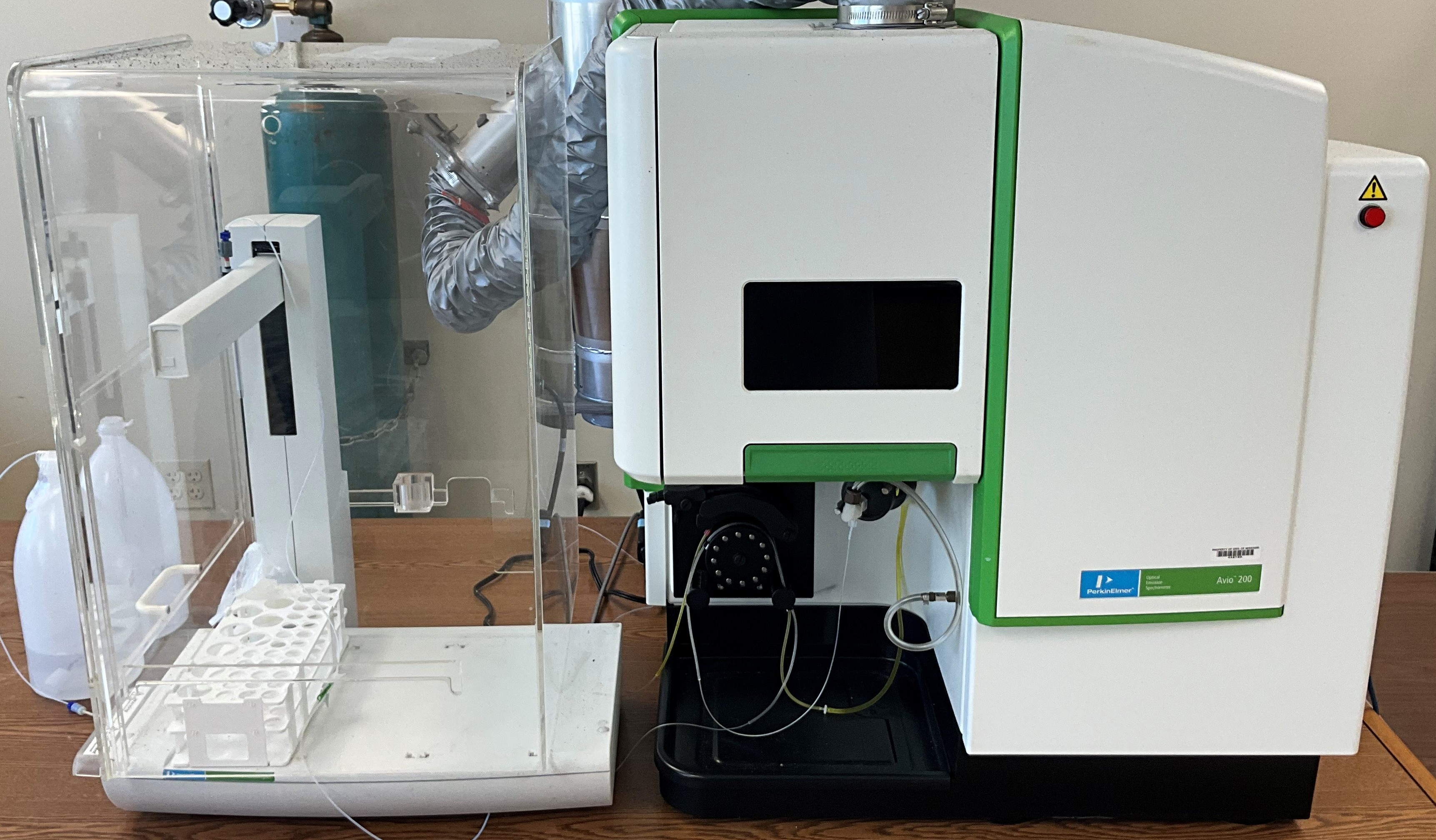
Perkin Elmer AVIO 200 ICP-OES
Location: 202 Butler Carlton Hall
Acquisition Date: 08/12/2016
Inductively Coupled Plasma-Optical Emission Spectrometer (ICP-OES) with liquid autosampler. This model purchased from Perkin Elmer is mainly used for metal elements, and semi-metal elements analysis. Boron (B), silica (Si), phosphorous (P), sulfur (S), and more nonmetallic elements also can be detected. The sensitivity of ICP-OES analysis is not as good as ICP-MS analysis for many elements.
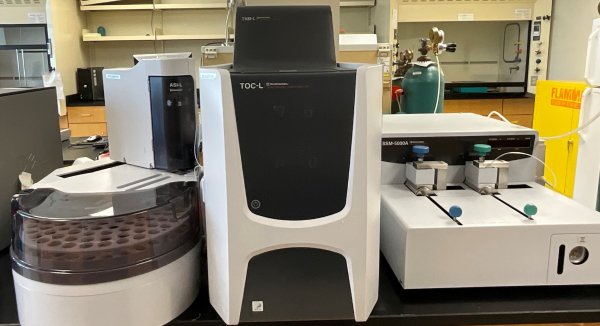
Shimadzu Total Organic Carbon Analysis
Location: 302 Butler Carlton Hall
Acquisition Date: 09/12/2012
Total organic carbon (TOC) analyzer is a Shimadzu product. The system is composed of TOC-L, ASI-L liquid autosampler, solid sample module, nitrogen module and a Whatman model 78-40 gas generator. This instrument is used to detect total organic carbon, total inorganic carbon, and also can detect total nitrogen (TN) in both liquid and solid samples.
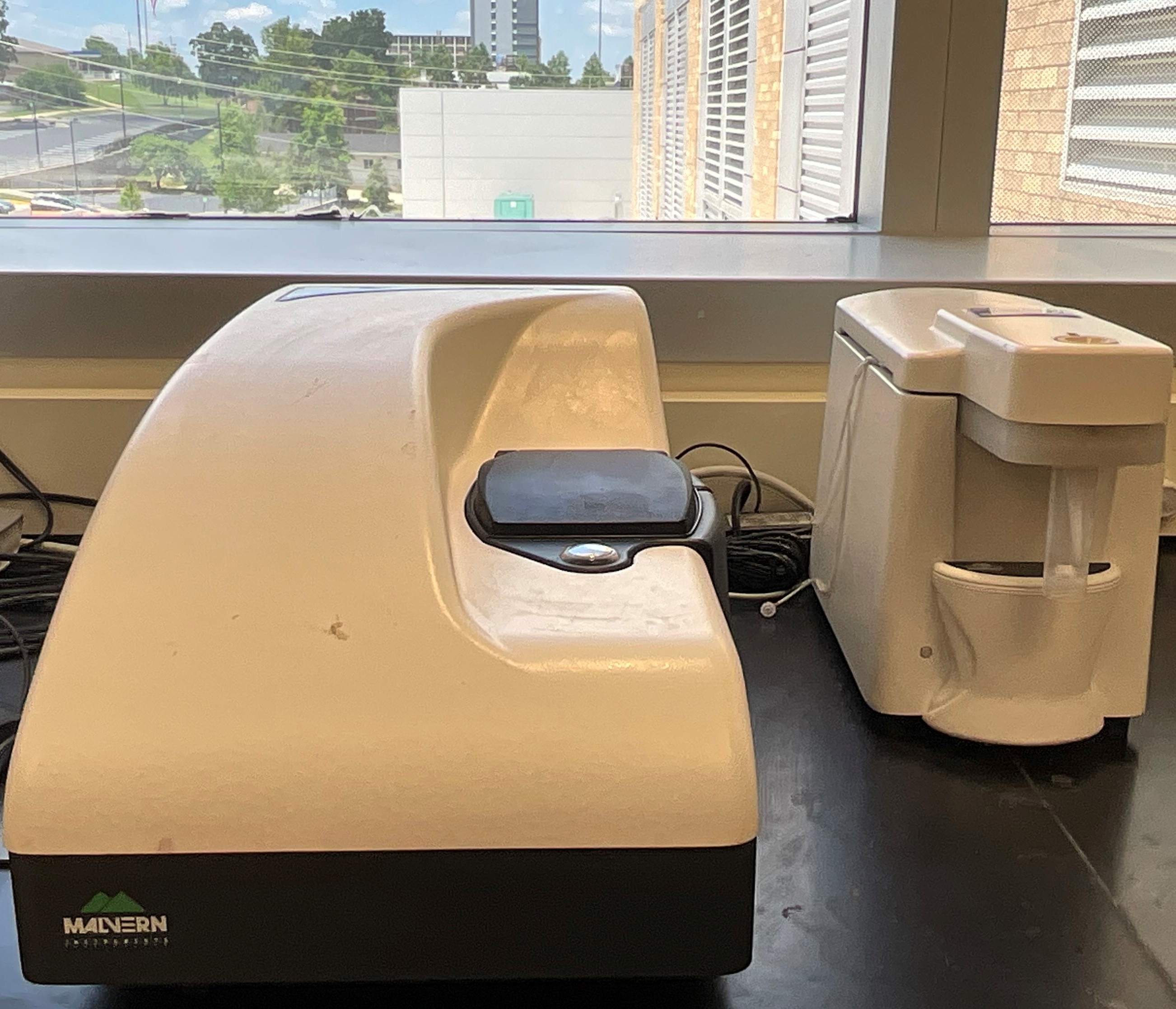
Malvern Zetasizer
Location: 302 Butler Carlton Hall
Acquisition Date: 01/14/2008
The Zetasizer is a product of Malvern, model Nano-ZS90. It is used for particle characterization, including particle size, zeta potential, and iso-electric Point (IP) detection. Suitable particle size ranges from 0.3nm to 5 microns. The materials include pharmaceutical dispersions and emulsions, nanoparticles, chemicals – surfactant micelles, colloid size and size distribution, and liposomes / vesicles.
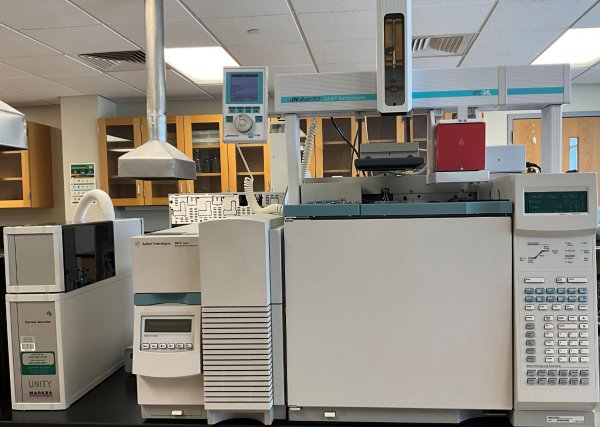
Agilent - Gas Chromatography/Mass Spectrometry - Only Headspace injection mode
Location: 303 Butler-Carlton Hall
Acquisition Date: 02/25/2005
GC–MS is extensively used for the analysis of these compounds which include esters, fatty acids, alcohols, aldehydes, terpenes etc. GC model is 6890 and MS model is 5973 inert, for example pesticides This system is currently primarily used for solid phase microextraction (SPME) work.
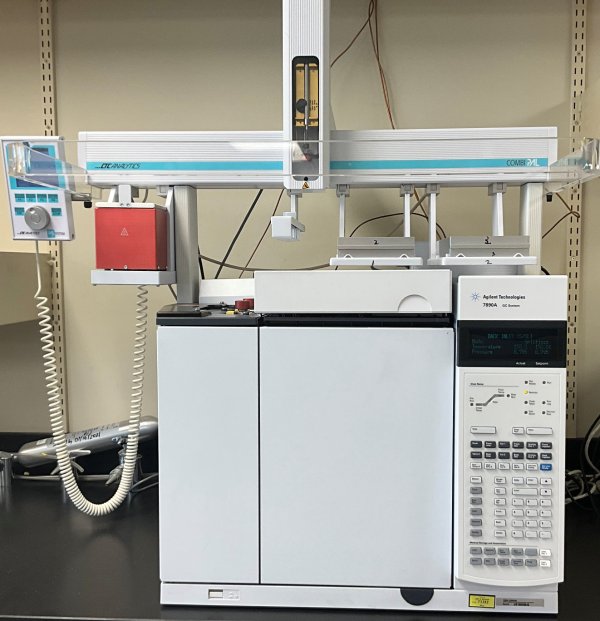
Gas Chromatograph with a Flame Ionization Detector (FID) and Electron Capture Detector (µECD) Combipal - Only Headspace injection mode
Location: 303 Butler Carlton Hall
Acquisition Date: 09/12/2012
Gas chromatography (GC) model is 7890 with a flame ionization detector (FID), an electron capture detector (µECD), and a COMBI PAL autosampler to analyze volatile and semi-volatile organic compounds. ECD is best for detecting electron-absorbing components (high electronegativity) such as halogenated compounds.
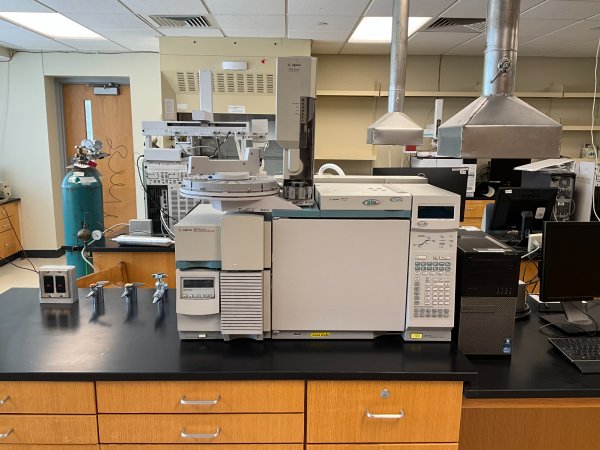
Agilent - Gas Chromatography/Mass Spectrometry - Solution injection mode
Location: 303 Butler Carlton Hall
Acquisition Date: 2/25/2002
GC–MS is extensively used for the analysis of these compounds which include esters, fatty acids, alcohols, aldehydes, terpenes etc. GC model is 6890 and MS model is 5973 inert, for example pesticides.
